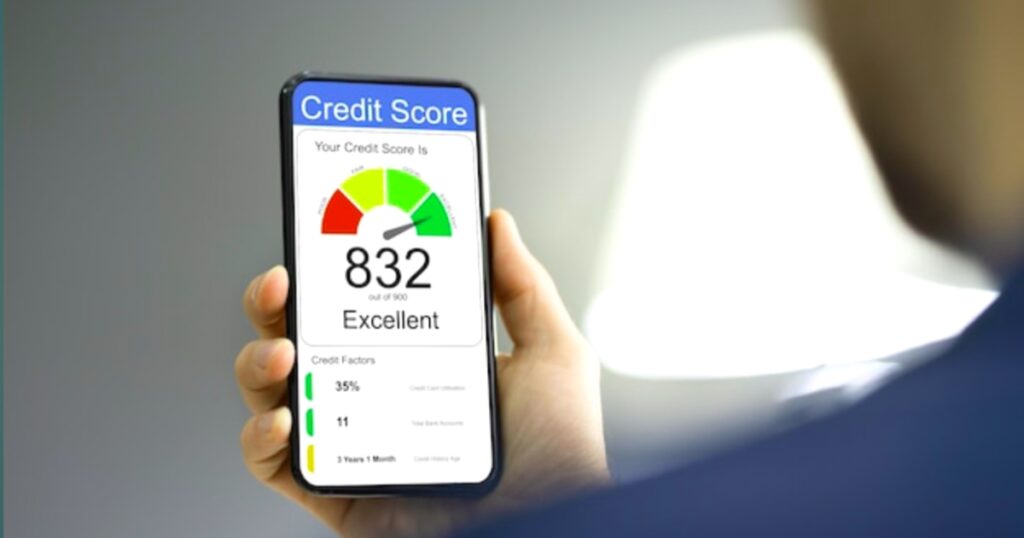Your cart is currently empty!

How to Quickly Raise Your Credit Score in 30 Days?
Is it possible to raise your credit score in a single month?. Although it may sound lofty, it is actually achievable. In 30 days or less, you can see noticeable growth if you’re determined and prepared to make a few wise decisions. Whether you want to take charge of your money, acquire better loan rates, or qualify for a mortgage, you can fast raise your credit score. This is your easy, step-by-step approach for achieving it.

Start by Understanding Your Current Credit Standing
To begin, ascertain your present credit status. Knowing where you stand is the first step to raising your credit score quickly in 30 days. Obtain your credit reports from TransUnion, Equifax, and Experian, the three main credit bureaus. This can be done at [AnnualCreditReport.com] for free once a year. Go over everything carefully. Keep an eye out for any late payments that shouldn’t be there, duplicate accounts, or inaccurate balances. Early error detection can have a significant impact and set the tone for the remainder of the month.
Fix Credit Report Errors Quickly
Correct Credit Report Inaccuracies Immediately Have you noticed anything that doesn’t seem right? Don’t hesitate; submit a dispute right away. Inaccurate payment dates or incorrect account statuses on your credit report are examples of mistakes that can unjustly lower your score. You can file disputes online with any credit bureau. They typically investigate and respond to you within 30 days. Your score can rise right away if the matter is settled in your favor. Just fixing one big error could provide you with a much-needed advantage.
Lower Your Credit Card Balances
Reduce Your Credit Card Amounts Your credit score is greatly influenced by your credit use ratio. This represents the proportion of your credit that is now being used to your available credit. This figure should ideally remain below 30%. However, strive for less than 10% if you want to quickly improve your credit score in 30 days. Paying off your credit card debt is one of the fastest ways to improve your credit score. Reducing your debt as much as you can will help, even if you are unable to pay everything off. Additionally, think about paying not just on the due date but also before the end of your billing cycle. In this way, a reduced amount is reported to the credit bureaus.
Ask for a Credit Limit Increase
Request an Increase in Your Credit Limit Requesting a larger credit limit from your credit card provider is another way to quickly reduce your credit utilization. They might approve it without conducting a rigorous credit inquiry if you’ve had your account for a long time and it’s in good standing. Assuming you have a \$800 balance on a \$2,000 credit limit, it represents 40% utilization. However, you will only be utilizing 20% if your cap is raised to about $4,000. Your score may improve as a result of such change. You only need to increase the proportion; you don’t need to spend more.
Never Miss a Payment
Don’t Miss a Payment On-time payments are a must if you’re serious about raising your credit score quickly in 30 days. Your payment history is the most important factor in determining your credit score. Whatever works best for you, you can set up calendar alerts, auto-pay, or reminders. You should double-check your due dates because it can take months to recover from a single missed payment. Make your payment immediately if you’re behind. You will do less long-term harm the sooner you catch up.
Become an Authorized User
Obtain Permission to Utilize A quick strategy to improve your credit score is to become a “authorized user” on someone else’s credit card, preferably a close friend or family member with good credit. Their account history, particularly if it’s good, shows up on your report when they add you to their card. You don’t have to use the card. Your credit score can also be improved as long as they continue to make payments and keep their debt low. It’s a straightforward action that can produce benefits quickly, perhaps in a matter of weeks.
Don’t Open New Credit Accounts (Unless Absolutely Needed)
If at all possible, avoid using credit to open new accounts. A hard inquiry appears on your credit record each time you apply for new credit. Your score may momentarily drop if you complete too many of these in a short amount of time. If you want to raise your credit score as soon as possible, you should wait to apply for a new card, even though it would seem like it could assist with credit utilization. Instead of adding something new that can slow you down, keep improving what you already have.
Keep Old Accounts Active
Maintain Active Old Accounts Credit history is very important. For this reason, even if you don’t use your credit card frequently, you shouldn’t close it. Your credit history is extended and your credit utilization is decreased with older accounts. Make occasional little purchases with the card and pay it off promptly if there isn’t an annual charge. By doing this, the account will remain active and continue to benefit you. Your credit profile may unintentionally suffer if you let old cards to close since they are no longer in use.
Add Positive Payment History with Tools Like Experian Boost
Use Experian Boost and Other Tools to Add a Positive Payment History l Want a little additional help? Using products like “Experian Boost”, you may add things like energy bills, streaming subscriptions, and cell phone payments to your credit file. Your credit score may benefit if you have a history of making on-time bill payments. Although it doesn’t work for everyone, you may test it for free and it won’t harm your credit. This action alone can result in a slight but immediate rise for a lot of folks.
Stay Focused and Be Consistent
Stay Focused and Consistent To improve your credit score in 30 days, you will need to be organized, focused, and self-controlled. The good news is that it ‘can’ occur. Everything you do adds up, whether it’s settling balances, correcting mistakes, or avoiding new requests. Small improvements can help you get better rates, improve your financial situation, and regain control of your life, even if your score doesn’t increase by 100 points.
Conclusion
In conclusion What would you do first now that you know how to raise your credit score quickly in 30 days? Review your report, make a payment schedule, and implement your plan. Although establishing excellent credit takes time, you can still make significant strides in a short amount of time. Go for it! You might have a higher credit score in as little as 30 days!
To build your credit score fast, you can also check our guide on “How Does Credit Card Interest Works?.
Also Read: How To Build Credit Score Fast In The USA (2025)
FAQs
Q:-Is it possible to raise my credit score in 30 days?
You certainly can! Certain actions, such as reducing credit card balances, correcting errors on your credit report, or becoming an authorized user, might result in visible improvements within a month, even though long-term practices are what establish solid credit. How aggressively you act and where you start will determine how much your score improves.
Q:-How can I raise my credit score the quickest?
Reducing your credit utilization is one of the fastest methods. This entails raising your credit limits (without increasing your expenditure) or paying off as much of your credit card debt as you can. Another quick and efficient way is to correct inaccurate bad items on your credit report.
Q:-Will my score drop if I look at my own credit report?
Absolutely not. Verifying your own credit or conducting a soft inquiry has no bearing on your score. In actuality, keeping a close eye on your credit is a wise decision since it enables you to identify mistakes early and evaluate your development as you correct them.
Q:-Should I apply for a new credit card to improve my credit score?.
Your credit utilization ratio may improve if you open a new card, but the hard inquiry may temporarily lower your score. Unless you are positive that the advantages outweigh the risks, it is usually preferable to concentrate on managing your current accounts if your objective is to raise your credit score quickly in 30 days.
Q:-How frequently do credit reports change?
Generally, credit scores are updated every 30 to 45 days, depending on when your lenders send information to the credit agencies. Some lenders do, however, report more regularly. Your score may alter earlier than anticipated if you settle disputes or make payments early in the billing cycle.
Leave a Reply